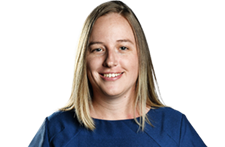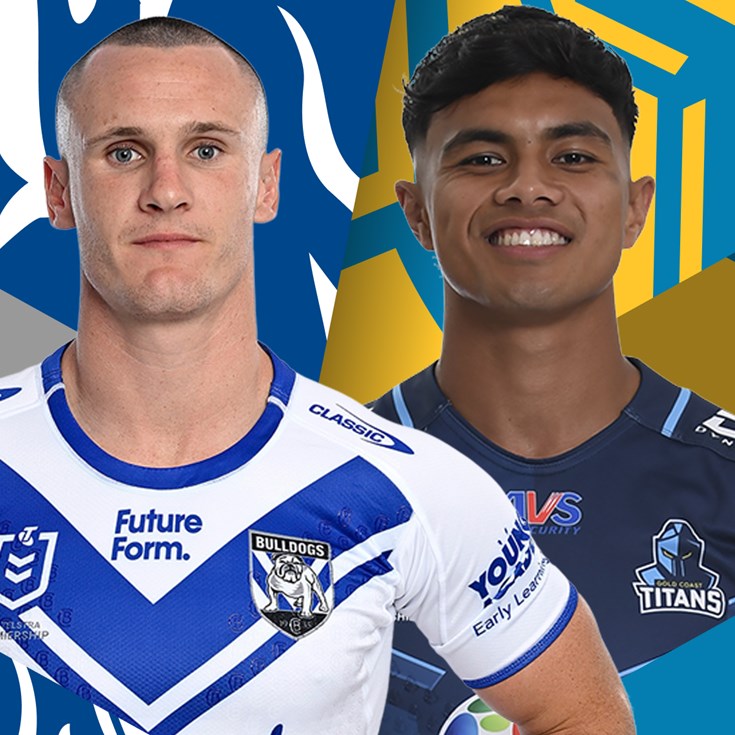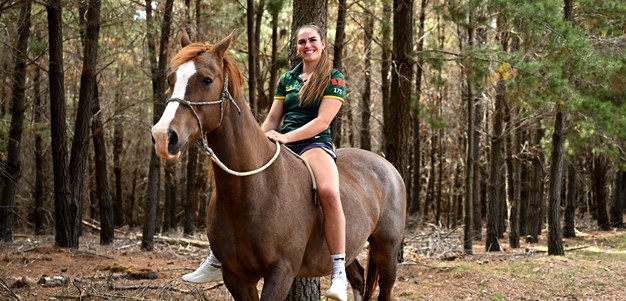Reality hit Jamie Feeney square in the eyes when a 35-year-old Sonny Bill Williams greeted the Roosters NRLW coach at club headquarters this week some 16 years after the pair laced on a boot together.
Feeney was the six-year Bulldogs servant who Williams learned the meaning of a hard work ethic from during the club's premiership win in 2004.
If not for his own title win in a local group 21 competition in the late 1990s, Feeney would be working his magic in the classroom as a PDHPE teacher.
Instead he crafted a rugby league career as a player and coach across the men's and women's games, with experiences and knowledge from the best.
NRL.com caught up with Feeney recently for a trip down memory lane.
Legend Q&A: Jamie Feeney
You were born and grew up in Muswellbrook – what was your childhood like?
It was a normal country-town upbringing with rugby league in the winter and cricket in the summer. I've got two sisters and there are about three years between each of us but I am the youngest.
Apart from when I got to make my own decisions, they were dressing me up in tutus and we never really shared the same interests. They were netballers and I played footy. We used to get home from school, round everyone in the neighbourhood up, get on our bikes and play.
My kids don't understand it, there were no computers back then or phones. We just did something every afternoon and it followed what the season was.

How did you get noticed by the Bulldogs?
It was a funny one for me. I finished school and went to university for PE teaching in Sydney but hated the city. I'd travel back to Muswellbrook as soon as I finished my lecture on a Friday and then come back again late on Sunday night for class. I'd play footy on the weekends and we won the northern division one year.
I got noticed but no one rang me or scouted me to come down to the Bulldogs, it was more if a couple of us wanted to go to a trial we could. I played well in that trial and that's when Mark Hughes said we'd like you to move down and I said I'm already living here. I had already decided to be a PE teacher, not a rugby league player, but got to do both in the end. I finished uni the same year I made my debut.
What do you remember about your NRL debut?
It was bizarre because I was part-time playing reserve grade and hadn't really trained with the full-time squad at all. Brad Clyde got injured falling off a horse at Origin camp and I got a call from Steve Folkes on a Wednesday saying I was going to make my debut that weekend.
The game went fast but I came on the field for about eight seconds and scored on my first touch. I ran out nervous as hell and said to Troy Stone 'what do you want me to do?' and he said 'stay outside me, we've got this play on'. I threw a dummy and scored a try in the end.
I scored another one later and we won the game 28-24 against the Warriors. I walked off thinking 'is that what it's going to be like?' I played another five games until Clydey came back.
Talk us through that 2002 campaign – 17 wins in a row and then to have it all crashing down due to salary cap breaches. You played in every game, what was it like in your eyes?
It was a weird time, my ex-wife was pregnant with our first child as well so I was excited about that and all this stuff started to flare up. They took the points off us, I know I wasn't troubling the accountant but we all tried to take pay cuts.
We didn't really know what was going on behind the scenes but on the field we stuck really strong and it taught us a lot about each other. I reference a lot of stuff from that experience today around how teams have to stick together to win games.
It was disappointing because it looked like we were going to finish with a really good year but I had better things to worry about with the birth of my daughter.
A couple of years later the side lifted the trophy in 2004 – you missed the grand final but what was that finish like?
Yeah, I was 18th man. It was out of me and a bloke named JT (Johnathan Thurston) for the final bench spot after Steve Price went down with a knee injury. We started the week training and I knew which way Folkesy was going to go so just warmed up and was part of all the lead-up.
Your departure at the Bulldogs came after that year when you moved to Melbourne – what was an inexperienced Craig Bellamy like then?
He doesn't look like he's changed when I still watch him in the box now. He's always been intense and I probably learned about 80 per cent of my coaching from Craig after spending some time down there as a player and coach. It's just a good environment to live down there. I think people underestimate the Melbourne environment as a positive for them.
For me, coming from Sydney and especially after '02 and '04 with the scrutiny the Bulldogs were under, you still get looked at in the shops and sometimes people came up to you. In Melbourne, I think even Cameron Smith is still anonymous down there and there's comfort in that because you can switch off.
You go to training then go home and be a dad, partner or a single guy that goes out and can enjoy himself. The AFL guys can't do that but league players can.
You'd have fond memories of playing alongside the likes of Cameron Smith, Billy Slater, Johnathan Thurston, Sonny Bill Williams, Israel Folau and Greg Inglis come through in their early days – do you pinch yourself looking back now?
I do pinch myself but it bloody makes me feel old. For example, Sonny was 19 when I was playing alongside him and now he's 35 and about to go around again.
I went into the Roosters office the other day as part of their bubble and here's Sonny saying 'Hey Jimmy how are you, buddy?' And I'm thinking I can't believe you're still playing and I finished so long ago.
I was quite humbled because when I complimented how well he looked physically he said it was you guys (former Bulldogs players) who taught him how to train. Back then he was just a kid but now he's a humble man and father. It's great to see players like him bring so much publicity in world sport.
Who had the biggest influence on your career?
Garry Carden was one, he was just made redundant at the Bulldogs after more than three decades. He taught me how to train hard enough to be a footballer.
When I arrived at the club I hadn't lifted a weight in my life and the only fitness training we did was run around the field.
With his methods and influence Gaz made us work hard and learned what it took physically and mentally to make it to the next step. Craig Bellamy was another as I mentioned before and my old man was also a really good coach in the juniors.

You're the new Roosters NRLW coach and a Jillaroos assistant – how important is the women's game to you and how did you get involved?
I probably wanted to be an NRL coach after Craig Bellamy's influence but grew out of that. I came on board as the NSW pathways manager in 2015 and that was the first year I'd watched a women's rugby league game.
I'd run the programs but help coach the NSW boys junior teams and then looked at the women's game. I love the development space available, they've got a greater capacity to learn because they haven't played all their life and haven't been overcoached.
I just like seeing the change and impact you can have on people through teaching or coaching. A lot of people want to get into the women's game now.
What does life look like now for Jamie Feeney?
I've got five children including two almost 11-month-old twin boys who I live with in Miranda with my wife. It's a different life but I stay in the game through coaching and really enjoy every aspect of it.
I don't take my job for granted but when I'm not in front of a computer I'm in front of two little boys who have their own different personalities, my wife and three teenagers who keep me busy.




